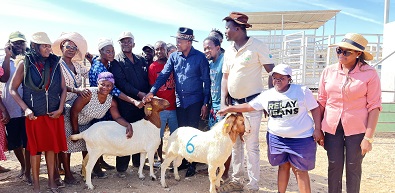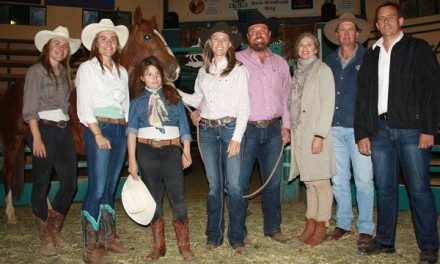
Resettlement farmers get indepth training

Part of the resettlement farmers during the Khomas training group in Windhoek
This training was made possible through funds acquired from the Land Acquisition and Development Fund and transferred to the Agricultural Bank of Namibia (Agribank), for use under the Farmers’ Support Project (FSP) to train resettlement beneficiaries resettled between 2011 and 2014.
The training was hosted in eight regions, covering Khomas, Hardap, !Karas, Erongo, Oshikoto, Otjozondjupa, Omaheke and Kunene.
Farmers were introduced to different topics to widen their knowledge and understanding on sustainable farming practises; and in particular rangeland management, farm infrastructure, animal health to horticulture and.
In addition, know-how transfer on Swakara pelt production was accomplished in the southern regions. “Course participants were most impressed by the rangeland topic, as most participants did not realise the relevance and that well-managed rangeland, sustains livestock production,” said Michael Degé, Agra ProVision’s Technical Advisor for Capacity Building and Entrepreneurial Development.
Among the highlights of the training courses were excursions to successful farmers in the regions..
This enabled course participants to gain good practical training on the topics, when or where opportunity to work with live animals and identify grass species on rangelands was provided.
30% of the training was dedicated to theory and 70% to the practical training, thus making the internalisation of new learning content easier and making the learning outcomes tangible and relevant.
As part of the training, course participants were introduced to representatives of the regional offices of the Ministry of Land Reform, Agribank, Meatco, Ministry of Agriculture, Water and Forestry Extension Offices, State Veterinarians, livestock auctions, and commercial farmers, and many other stakeholders.












































